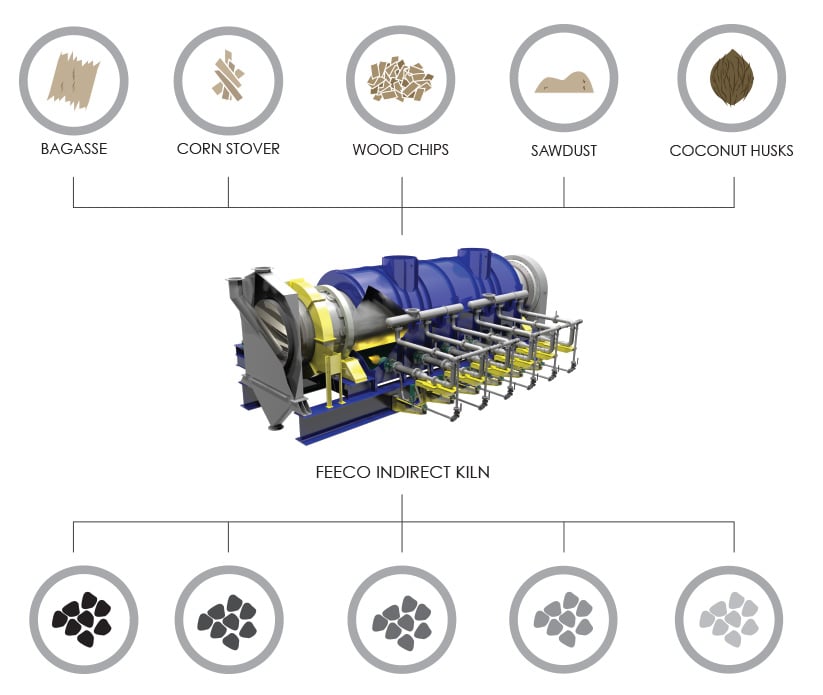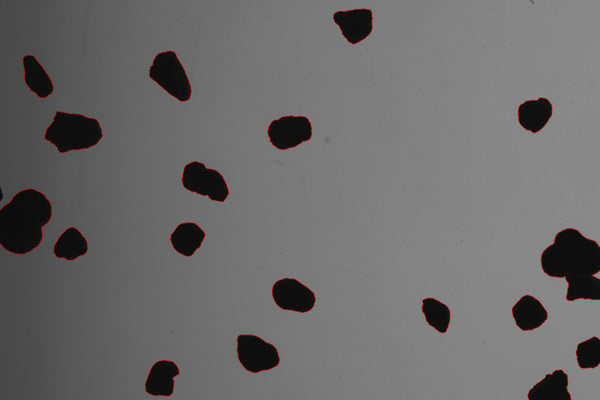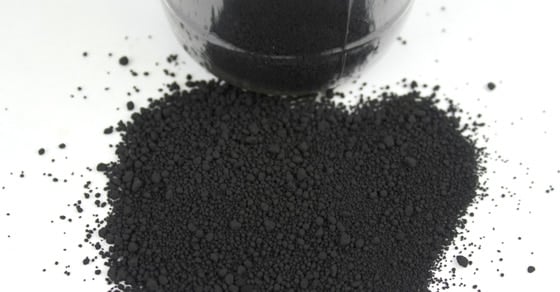Biochar is continuing to make a name for itself in a myriad of industries, with new applications making headlines all the time. Uses in water treatment, energy production, animal husbandry, and more have created a flurry of activity around this carbon-based material produced from biomass.
As with any new industry, feasibility testing, and process and product development are critical to bringing a product to market. This is perhaps especially true when it comes to biochar.
Why Testing for Biochar is Critical
In addition to being in its infancy as an industry, biochar also presents a number of challenges that make testing a necessity.
Various characteristics, including pore size, cation exchange, electrical conductivity, and more will influence the performance of a biochar product and are all likely to differ based on the source material and the processing conditions.
Sources of Biochar
Biochar can be created from a nearly endless list of biomass materials. And while this creates the opportunity for an industry rich in highly customizable products, it can also make biochar unpredictable, with each source influencing the characteristics of the end product differently.
Wood chips, sawdust, corn stover, sugarcane bagasse, and coconut husks represent just a few of the biomass materials that can be transformed into a biochar product. Similarly, even the same material can vary significantly across different sources, with factors such as moisture content, particle size distribution, bulk density, and more all requiring consideration.

Processing Conditions
In addition to the characteristics of the source material influencing the end product, the processing conditions also have an impact on the characteristics of the end product.
Biochar is produced from biomass through a process called pyrolysis, in which dried biomass is processed in an oxygen-free atmosphere at temperatures between 500 – 800ºF. This is typically carried out in an indirect-fired rotary kiln, or pyrolysis kiln.
A variety of process parameters such as retention time, temperature, and more will all play a role in shaping the characteristics of the end product and in turn, how it performs.
Biochar Testing Facilities
As a developing industry, the supply of testing facilities hasn’t quite caught up with the demand.
“We have definitely seen an influx of inquiries around testing biochar lately,” states Nick Reckinger, Process and Bioresource Sales Engineer at FEECO International. “People are coming to us to develop biochar for use in all sorts of applications. What they like about our facility is that we have the setup and experience to test each part of the process – agglomeration, drying, and high temp thermal processing. This allows them to zero-in on exactly what’s working and what needs improvement. To my knowledge, we’re the only facility around with these capabilities.”
Types of Testing Available
While pyrolysis is a major focus of the process development stage, it is also necessary to test the drying and agglomeration steps. In each scenario, testing helps to define process data and provide the information necessary for scale-up to commercial production capacities. Testing will also help to determine if any sort of pre-treatment (such as grinding or mixing) will be required.
Drying
Few materials can boast such significant variation in characteristics as biomass. Before biomass can be pyrolyzed in a rotary kiln, it must first be dried. The variation in moisture content, particle size distribution, and more require a biomass drying system to be designed around the unique source at hand to produce the most efficient drying solution. Drying is also necessary as a downstream step to agglomeration.
Drying parameters such as temperatures, retention time, flight design and pattern can all be worked out through testing.
The FEECO Innovation Center offers testing units such as a continuous rotary dryer, as well as a flight simulator. Drying as part of a continuous process loop with an agglomeration setup can also be tested.
Pyrolysis
The pyrolysis process also requires testing to work out process variables and design a commercial scale unit.
Testing for pyrolysis is typically carried out first at batch scale, then at pilot scale. Testing around pyrolysis helps to determine the rotary kiln design parameters that will best suit the material at hand to produce the desired results.
The FEECO Innovation Center offers a variety of test kilns to allow customers to test nearly any combination of pyrolysis conditions at both batch and pilot scale.
Agglomeration
Biochar leaving the rotary kiln is in the form of a powder. Although biochar can be used in powder form, it is often desirable to agglomerate it, particularly in the case of soil amendments. Some biochars may be difficult to pelletize alone and as such, may be included as part of a blend to assist in enabling successful agglomeration. Soil amendment producers are often looking to combine biochar with other materials such as compost in order to create a specialized product.
Various agglomeration methods can be tested in the FEECO Innovation Center, including micro-pelletizing (pin mixer), pelletizing (pin mixer and/or disc pelletizer), and more.
Particle Analysis
Throughout biochar testing, it is necessary to analyze particles for a variety of parameters.
A 3D Dynamic Image Analysis tool can provide real-time particle analysis during testing to measure density, thickness, surface roughness, size, shape, and more.

Furthermore, particles can be analyzed to determine attrition, compression, crush strength, green/wet strength, moisture content, and more to ensure particles will perform exactly as desired.
Automation
As a Rockwell Automation partner, the FEECO Innovation Center is also equipped with a Programmable Logic Controller (PLC) and Motor Control Center (MCC). A variety of data points can be tracked, trended, and even adjusted in real-time to create a seamless and highly intuitive testing experience.
Conclusion
Testing is a critical part of any new industry, but may be especially important with biochar, due to its significant variability and the challenges it can present. As new applications for biochar are constantly developing, the need for testing facilities is in high demand.
The FEECO Innovation Center is a unique facility with comprehensive testing capabilities for all of your biochar needs. We can help take you from idea to full-scale production, and even manufacture the equipment you need. For more information, contact us today!

